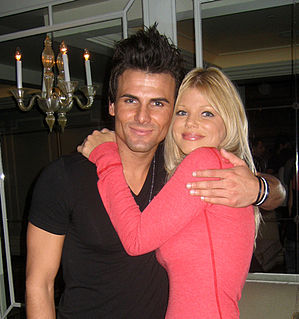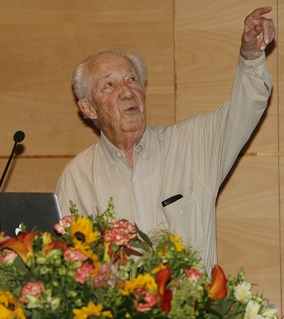A Quote by David R. Brower
All I know about thermal pollution is that if we continue our present rate of growth in electrical energy consumption it will simply take, by the year 2000, all our freshwater streams to cool the generators and reactors.
Related Quotes
On Earth Day I made a commitment to reduce our emissions of greenhouse gases to 1990 levels by the year 2000. And I asked for a blueprint on how to achieve this goal. In concert with all other nations, we simply must halt global warming. It is a threat to our health, to our ecology, and to our economy. I know that the precise magnitude and patterns of climate change cannot be fully predicted. But global warming clearly is a growing, long-term threat with profound consequences. And make no mistake about it, it will take decades to reverse.
The growth of the American food industry will always bump up against this troublesome biological fact: Try as we might, each of us can only eat about fifteen hundred pounds of food a year. Unlike many other products - CDs, say, or shoes - there's a natural limit to how much food we each can consume without exploding. What this means for the food industry is that its natural rate of growth is somewhere around 1 percent per year - 1 percent being the annual growth rate of American population. The problem is that [the industry] won't tolerate such an anemic rate of growth.
When we give up dieting, we take back something we were often too young to know we had given away: our own voice. Our ability to make decisions about what to eat and when. Our belief in ourselves. Our right to decide what goes into our mouths. Unlike the diets that appear monthly in magazines or the thermal pants that sweat off pounds, unlike a lover or a friend or a car, your body is reliable. It doesn't go away, get lost, stolen. If you will listen, it will speak.
If we do not learn to eliminate waste and to be more productive and more efficient in the ways we use energy, then we will fall short of this goal [for the Nation to derive 20 percent of all the energy we use from the Sun, by 2000]. But if we use our technological imagination, if we can work together to harness the light of the Sun, the power of the wind, and the strength of rushing streams, then we will succeed.
I hope a start at getting some oil out of the enormous Alaska field isn't indefinitely mired in a bureaucratic morass as a result of our national concern for the ecology. This concern must not be so misguided, misdirected, misused that it serves to stop economic growth, to bankrupt companies, to stifle new development, new jobs, new horizons. In fighting new pollution and stemming present pollution, exciting, sometimes costly means and methods exist and others will evolve. But blanket legislative naysaying to expanding power and energy sources is stupid, self-defeating.
The cost of our success is the exhaustion of natural resources, leading to energy crises, climate change, pollution, and the destruction of our habitat. If you exhaust natural resources, there will be nothing left for your children. If we continue in the same direction, humankind is headed for some frightful ordeals, if not extinction.
My plan has all that. It's energy independence. It will help our economy. It's a significant tax cut for corporations, including automatic expensing. It's bringing all those profits home from Europe without any taxation. It's lowering our corporate - or our personal rate to 28 percent, the same rate that Ronald Reagan had.







































